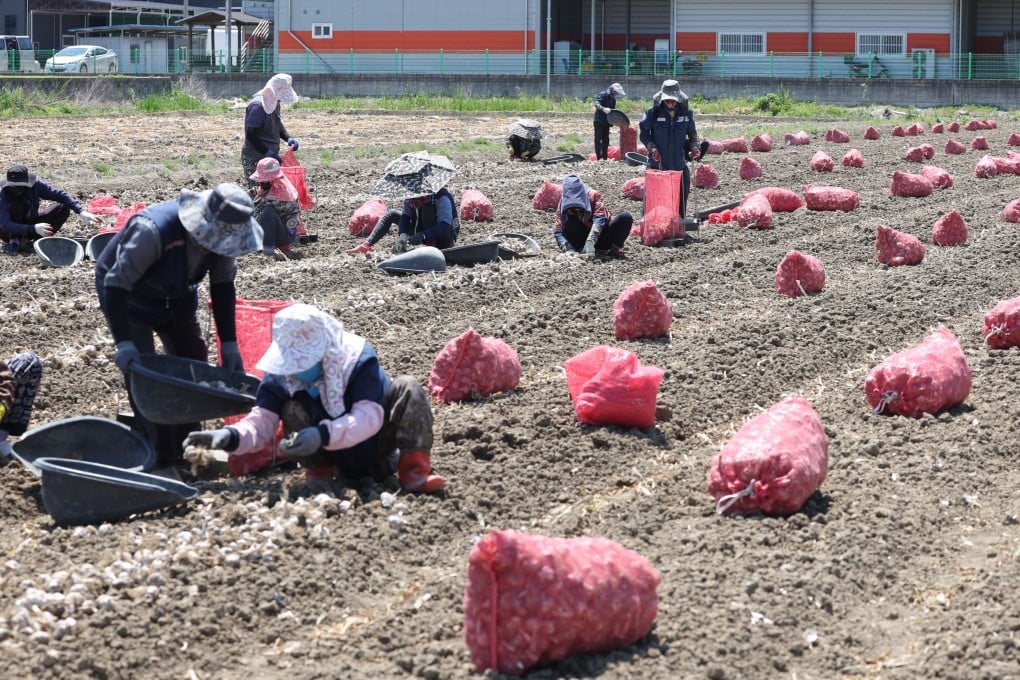Abused, exploited, treated like ‘slaves’: the plight of Filipino farm workers in South Korea
- Rights groups say a seasonal worker scheme aimed at easing South Korea’s acute labour shortage has turned into a new form of modern slavery

Vulnerable, low-paid Filipinos have been exploited, tricked and abused under a migrant worker scheme launched by South Korea to plug its severe labour shortage, an investigation by the Thomson Reuters Foundation has found.
Under the scheme – which also recruits workers from Nepal, Vietnam, Mongolia, Laos, Cambodia, Uzbekistan and Thailand – farmers and fishermen relocate to South Korea for five to eight months of work with the promise of big wages to take home.
But the Thomson Reuters Foundation has talked to a dozen ex-workers who say the scheme falls short – many say they returned empty-handed and some risked losing land to the brokers who sealed their temporary contracts.
Workers said brokers had charged excessive fees for securing them back-breaking work, controlled their movements by confiscating their passports and documents, and cheated them out of promised wages.
“This clearly demonstrates the vulnerability of seasonal workers to human trafficking and forced labour,” said Ko Gikbo of the Joint Committee with Migrants in Korea (JCMK), a coalition of groups working to improve migrant rights.
